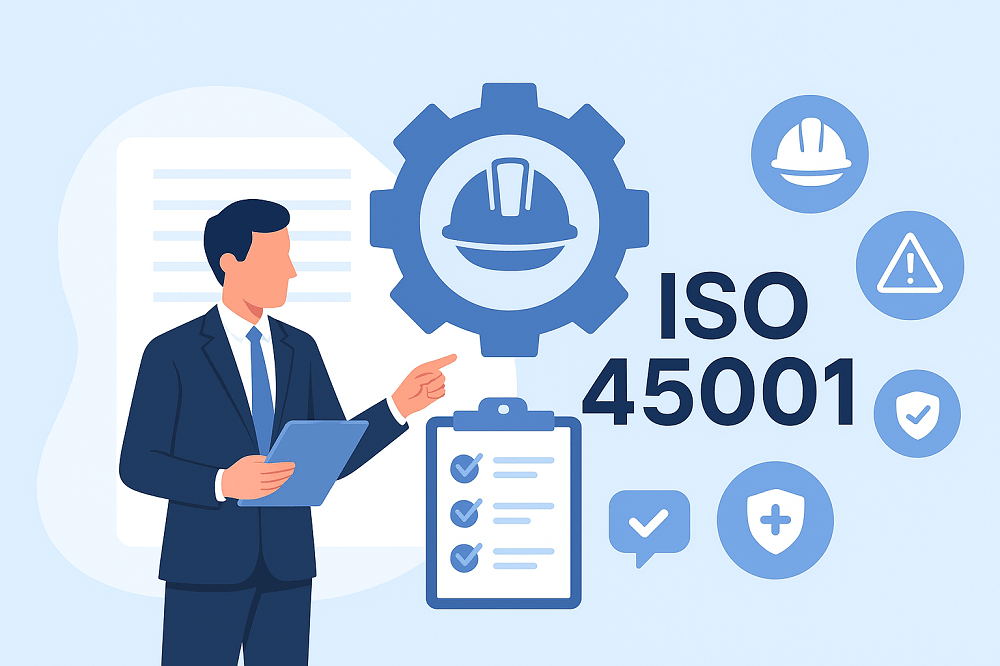In today’s competitive business landscape, organizations are under increasing pressure to maintain high standards of occupational health and safety. Companies must not only comply with regulatory requirements but also foster a safe and healthy environment for their employees. This is where ISO 45001 consultants play a pivotal role.
ISO 45001 is the internationally recognized standard for Occupational Health and Safety Management Systems (OHSMS). Implementing it properly can reduce workplace incidents, enhance employee morale, and boost organizational reputation. However, achieving certification without expert guidance can be challenging. By hiring an ISO 45001 consultant, businesses gain access to the expertise needed to streamline compliance, identify risks, and create sustainable safety practices.
Understanding ISO 45001
ISO 45001 is designed to help organizations create a framework for managing occupational health and safety risks. It is applicable to companies of all sizes and industries, ensuring that proactive measures are in place to prevent work-related injuries and illnesses. Unlike reactive approaches, ISO 45001 focuses on risk prevention, continuous improvement, and employee participation.
Key aspects of ISO 45001 include:
- Identifying hazards and assessing risks
- Setting safety objectives and targets
- Implementing preventive and corrective actions
- Ensuring compliance with legal and regulatory requirements
- Building a culture of safety across the organization
For many companies, interpreting these requirements and integrating them into day-to-day operations can be complex. That’s why organizations often rely on an ISO 45001 consultant to navigate the process effectively.
Role of an ISO 45001 Consultant
An ISO 45001 consultant is a professional who specializes in guiding businesses through the implementation and certification of the ISO 45001 standard. Their role goes beyond documentation and audits — they provide strategic insights and hands-on support that ensures long-term compliance and safety improvements.
Some of the key responsibilities of an ISO 45001 consultant include:
- Gap Analysis
The consultant assesses your existing health and safety management practices to identify areas where your organization falls short of ISO 45001 requirements. This provides a clear roadmap for necessary changes. - Customized Implementation
Every business is unique, and a one-size-fits-all approach doesn’t work. Consultants design tailored strategies that align ISO 45001 with your organization’s industry, size, and operational complexities. - Training and Awareness
Employees play a central role in occupational health and safety. A consultant conducts training programs to build awareness, empower staff, and encourage active participation in safety initiatives. - Documentation Support
ISO 45001 requires proper documentation of processes, policies, and records. Consultants help create and maintain these documents in compliance with certification standards. - Audit Preparation
External audits can be daunting. A consultant prepares your team, conducts internal audits, and ensures that the organization is fully ready for third-party certification. - Continuous Improvement
Even after certification, consultants help organizations monitor performance, measure safety KPIs, and implement ongoing improvements.
Benefits of Hiring an ISO 45001 Consultant
Working with an ISO 45001 consultant offers a wide range of benefits that go beyond simply achieving certification:
- Expert Guidance
Consultants bring deep knowledge of ISO standards and best practices. Their expertise saves time and reduces errors during implementation. - Faster Certification
With a structured approach, organizations can achieve ISO 45001 certification more quickly compared to managing the process internally. - Cost-Effective
Although hiring a consultant requires investment, it often reduces long-term costs associated with workplace accidents, non-compliance penalties, and operational inefficiencies. - Enhanced Employee Safety
Consultants help establish systems that prioritize employee health, reducing accidents, injuries, and absenteeism. - Improved Business Reputation
ISO 45001 certification demonstrates a commitment to safety, which can strengthen client trust, attract top talent, and improve stakeholder confidence. - Regulatory Compliance
Consultants ensure that businesses comply with national and international occupational health and safety laws, minimizing the risk of legal issues.
Industries That Benefit from ISO 45001 Consultants
While ISO 45001 applies to all organizations, certain industries benefit the most from professional consultancy:
- Construction – High-risk environments require strict safety measures.
- Manufacturing – Machinery, chemicals, and heavy equipment pose significant hazards.
- Healthcare – Protecting both staff and patients is crucial.
- Energy & Utilities – Employees face risks from hazardous conditions and equipment.
- Transportation & Logistics – Ensuring driver and worker safety is a top priority.
Regardless of the industry, a consultant ensures that ISO 45001 requirements are implemented effectively and aligned with operational realities.
Steps to Choosing the Right ISO 45001 Consultant
When selecting an ISO 45001 consultant, businesses should consider:
- Experience and Expertise – Check their track record with similar industries.
- Certification Knowledge – Ensure they have in-depth understanding of ISO standards and auditing processes.
- Customization Approach – Look for consultants who tailor strategies rather than using generic templates.
- Training Skills – Choose someone capable of engaging and educating your workforce.
- Post-Certification Support – The best consultants provide ongoing guidance, not just initial implementation.
ISO 45001 Consultant vs. In-House Implementation
Some companies attempt to implement ISO 45001 internally. While possible, it often stretches resources and may lack efficiency. An ISO 45001 consultant brings objectivity, fresh perspectives, and proven methods that streamline the process. They also ensure that common pitfalls — such as inadequate risk assessments or incomplete documentation — are avoided.
The Future of Occupational Health and Safety
With growing awareness of employee well-being and stricter compliance requirements, ISO 45001 will continue to gain importance globally. Organizations that adopt this standard not only safeguard employees but also enhance operational performance and resilience. Consultants will remain essential in this journey, bridging the gap between compliance and best practice.
Conclusion
Hiring an ISO 45001 consultant is a strategic decision that helps businesses create safer workplaces, achieve compliance, and build a culture of continuous improvement. From conducting gap analyses to preparing for certification audits, consultants provide the expertise and guidance needed for successful ISO 45001 implementation.
In a world where workplace safety is not just a regulatory requirement but also a moral responsibility, consultants empower organizations to move beyond compliance and make employee health a true priority.
By investing in an experienced ISO 45001 consultant, businesses not only protect their workforce but also strengthen their reputation, reduce risks, and achieve long-term sustainability.













